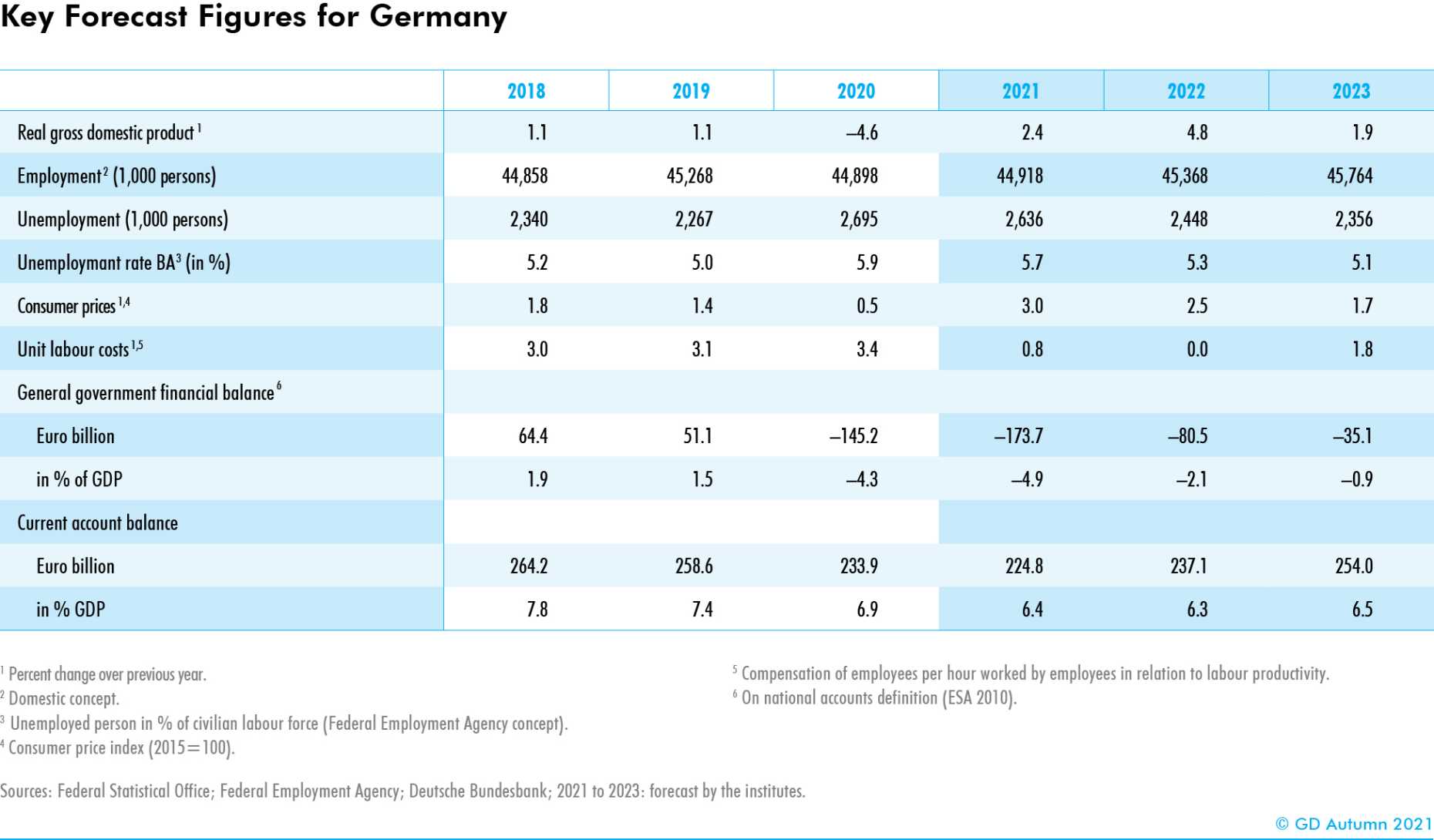Joint Economic Forecast for Germany: Crisis is gradually being overcome
The Corona pandemic still shapes the economic situation in Germany. The German economy will reach normal capacity utilisation in the course of 2022. In their autumn report, the leading economic research institutes – amongst them the ifo Institute in cooperation with the KOF Swiss Economic Institute – forecast that Gross Domestic Product (GDP) will rise by 2.4% in 2021 and by 4.8% in 2022.
After new waves of infections had delayed the recovery during 2020/2021, Gross Domestic Product rose significantly since the infections subsided in spring. However, supply bottlenecks for intermediate products are hampering production in the manufacturing sector. As a result, only the consumer-related service industries are growing. The recovery will still be slowed down in winter 2021/2022, since activity in the service sector will remain below the usual level during the cold season, even with low levels of infection.
Supply bottlenecks will gradually be overcome
In addition, supply bottlenecks will continue to weigh on manufacturing production for the time being. For the coming year, the institutes assume that the adverse effects of the pandemic and of supply bottlenecks will gradually be overcome. Accordingly, normal capacity utilisation will be regained. “Overall, GDP is expected to grow by 2.4% in 2021 and by 4.8% in 2022,” says Oliver Holtemöller, vice president at the Halle Institute for Economic Research (IWH). The institutes expect consumer prices to rise by 3% in the current year and by 2.5% in 2022. The public budget deficit is likely to decline from 4.9% in relation to GDP in the current year to 2.1% in the following year.
Given the strong increase in nominal GDP, the government debt-to-GDP ratio is expected to decline from 71% in 2021 to 67% in 2022. The economic consequences of the Corona crisis will be gradually overcome with the return to normal capacity utilisation. “However, the challenges of climate change and the foreseeable lower economic growth due to a shrinking labour force will reduce consumption opportunities,” says Holtemöller.

The Joint Economic Forecast was prepared by the German Institute for Economic Research (DIW Berlin), the ifo Institute (Munich) in cooperation with the KOF Economic Institute (Zurich), the Kiel Institute (IfW Kiel), the Halle Institute for Economic Research (IWH), and RWI (Essen).
The complete report is external page here available (in German).
Contact
KOF Konjunkturforschungsstelle
Leonhardstrasse 21
8092
Zürich
Switzerland